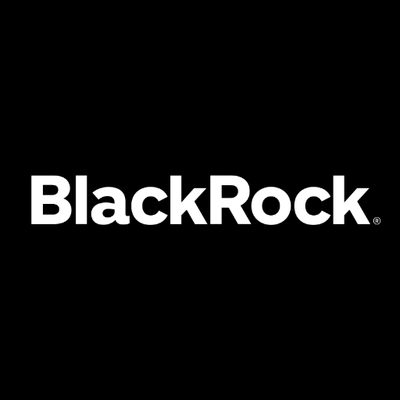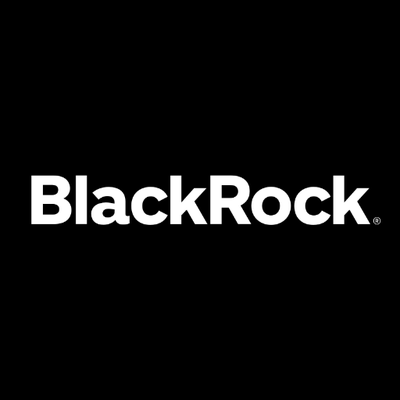Blackrock Greater Europe Investment Trust plc (LON:BRGE) has provided the following portfolio update.
All information is at 31 July 2020 and unaudited.
Performance at month end with net income reinvested
| One Month | Three Months | One Year | Three Years | Launch (20 Sep 04) | |
| Net asset value (undiluted) | 1.0% | 18.8% | 10.5% | 39.1% | 486.0% |
| Net asset value* (diluted) | 0.8% | 18.9% | 10.2% | 38.7% | 485.0% |
| Share price | 3.6% | 19.7% | 14.1% | 45.9% | 486.6% |
| FTSE World Europe ex UK | -1.4% | 12.0% | -2.8% | 7.7% | 263.2% |
* Diluted for treasury shares and subscription shares.
Sources: BlackRock and Datastream
At month end
| Net asset value (capital only): | 436.54p |
| Net asset value (including income): | 441.03p |
| Net asset value (capital only)1: | 436.65p |
| Net asset value (including income)1: | 440.08p |
| Share price: | 437.00p |
| Discount to NAV (including income): | 0.9% |
| Discount to NAV (including income)1: | 0.9% |
| Net gearing: | 8.6% |
| Net yield2: | 1.3% |
| Total assets (including income): | 371.9m |
| Ordinary shares in issue3: | 84,323,101 |
| Ongoing charges4: | 1.1% |
1 Diluted for treasury shares.
2 Based on a final dividend of 4.10p per share for the year ended 31 August 2019 and an interim dividend of 1.75p per share for the year ending 31 August 2020.
3 Excluding 26,005,837 shares held in treasury.
4 Calculated as a percentage of average net assets and using expenses, excluding interest costs, after relief for taxation, for the year ended 31 August 2019.
| Sector AnalysisTotal Assets (%)Technology24.2Health Care19.2Industrials18.5Consumer Goods10.8Financials9.4Consumer Services8.9Oil & Gas3.6Basic Materials3.0Telecommunications2.4—–100.0===== | Country AnalysisTotal Assets (%)Denmark18.6Switzerland14.7Netherlands11.8France11.7Germany10.1Italy6.9Sweden5.4Russia4.9United Kingdom3.9Spain2.6Belgium2.3Finland2.1Israel2.1Ireland1.9Poland0.8Greece0.2—–100.0===== |
| Top 10 holdings | Country | Fund % |
| ASML | Netherlands | 5.9 |
| SAP | Germany | 5.8 |
| Sika | Switzerland | 5.7 |
| Lonza Group | Switzerland | 5.5 |
| Novo Nordisk | Denmark | 5.3 |
| Royal Unibrew | Denmark | 5.0 |
| Kering | France | 5.0 |
| DSV | Denmark | 4.2 |
| RELX | United Kingdom | 3.9 |
| Hexagon | Sweden | 3.2 |
Commenting on the markets, Stefan Gries, representing the Investment Manager noted:
During the month, the Company’s NAV rose by 1.0% and the share price by 3.6%. For reference, the FTSE World Europe ex UK Index returned -1.4% during the period.
Europe ex UK markets fell during July given concerns over rising coronavirus cases in many countries, which we believe had to be expected with lifting lockdown measures. Towards the end of the month, EU leaders agreed on the €750bn EU recovery fund in a four day marathon summit. They agreed the fund would be made up of €390bn of grants and €360bn of loans and is aimed to support, in particular, Southern European countries that have been hit the hardest by the coronavirus outbreak. These measures are likely to reduce the risk of any break-up of the bloc and can lower the overall risk premium for European shares. Grants will be conditional on a set of reforms that should foster sustainable growth and green and digital transitions.
Defensive sectors including utilities outperformed the market, while oil & gas and financials lagged. The telecoms sector was the weakest performer as several benchmark heavyweights, that are not held in the Company, posted poor results having seen a negative impact from lower roaming fees as people were travelling less, as well as in certain cases troubled Emerging Market exposure.
The Company outperformed the reference index over the month, driven by strong stock selection while sector allocation was neutral. In sector terms, the Company benefited from a higher allocation to technology and industrials, as well as a lower allocation to financials and telecoms. The Company’s lower weighting to defensive areas of the market, including utilities, detracted from relative returns. Outperformance was largely driven by a number of the portfolio’s highest conviction names delivering strong earnings updates.
The best performing stock over the period was a holding in Royal Unibrew. The shares rebounded strongly, having lagged the market in the first half of the year. It was the first beverage company to re-introduce its 2020 guidance in June, a testament of strong management execution and cost control. In an industry which is shaped by changing consumer preferences, at ever faster velocities through time, thanks in large part to social media, Royal Unibrew values de-centralisation in bringing them closer to the customer. This allows local management to identify trends for products, brands, packaging and consumption and to react quickly to these opportunities.
Stock selection was also strong within the healthcare sector. The Company saw a positive contribution from our longstanding holding in contract drug manufacturer Lonza. The company reported core earnings per share 10% ahead of consensus expectations and reiterated their guidance for FY20 for above mid-single digit sales growth and stable margins. The company continues its plan of disposals of non-core assets, which we believe improves the sustainability of its earnings profile in the long-run. Not owning Roche, Novartis and Bayer was also positive for active returns.
The Company delivered strong performance from the industrial sector. Chemicals distributor Sika contributed positively to performance. Sika posted strong results with a 3% beat to organic growth versus expectations, noting a return to positive organic growth in June. Whilst the topline was down for the first half, margins expanded illustrating the resilience through strong management of the business. The company see a recovery for the second half of the year, with improvement in construction markets and higher sales volumes after the business had been hit by the shutdown.
Shares in DSV continued to rally following the previous month’s strong results, while a position in IMA (Industria Macchine Automatiche) also contributed positively. IMA helped performance, as the company gave an early positive quarterly update. Shares were further lifted due to a private equity company looking to buy into the family investment vehicle which is currently the largest shareholder. This partnership could potentially take IMA off the public market by de-listing the stock at a premium to where it is currently trading.
The largest detractor to active returns came from a holding in publishing company RELX. Shares continued to fall due to their exhibitions business being negatively impacted by the lockdown, as well as worries of lower library budgets on the back of COVID-19 related disruptions. We believe the core elements of the business remain on track but are mindful of difficulties faced in certain segments.
A negative contribution also came from our core holding in ASML. Shares dipped as Intel announced they would not go ahead with ordering 5nanometer chips. While this created short-term noise, we do not believe this changes the long-term investment case as demand for their products is set to grow structurally. Structural trends are driving demand for more computing power, more powerful chips, and therefore more intricate designs which ASML are well positioned to capitalise on.
At the end of the period, the Company had a higher allocation than the reference index towards technology, consumer services, industrials and health care. The Company had a neutral weighting towards oil & gas and telecoms and an underweight allocation to consumer goods, financials, utilities and basic materials.
Outlook
Over recent years many investors have avoided exposure to European equities owing to concerns around political risk, rising populism, a challenged financial system and the region’s larger than average exposure to China. We have long been of the view that one needs to take an active approach to investing in European equities. With this in mind, we did not need to be positive on Europe as a region to offer our shareholders exposure to some truly unique companies that happened to be listed in the region. The response to the fallout from COVID-19 has the potential to change the more bearish view on the asset class as a whole.
The proposed €750bn EU recovery fund is a great step of solidarity for the bloc and one that can potentially bring greater fiscal coordination. This fund could create net transfers ranging from 3% to 20% of GDP for countries such as Greece, Portugal, Spain and Italy. To be funded from the issuance of common EU bonds, this fund marks the first instance of debt mutualisation for the region – a step which will act to bring in yield spreads for those southern economies and potentially reduce the ever looming risk associated with a break-up of the bloc. We believe this can bring down the overall risk premium for European equities. In this context, both the economy and local stock markets appear well positioned to make up lost ground, potentially transforming European equities into a standout opportunity in the developed world and notably providing further subsidies for growth in Emerging Europe.
19 August 2020
To discover more about the BlackRock Greater Europe Investment Trust click here.






































